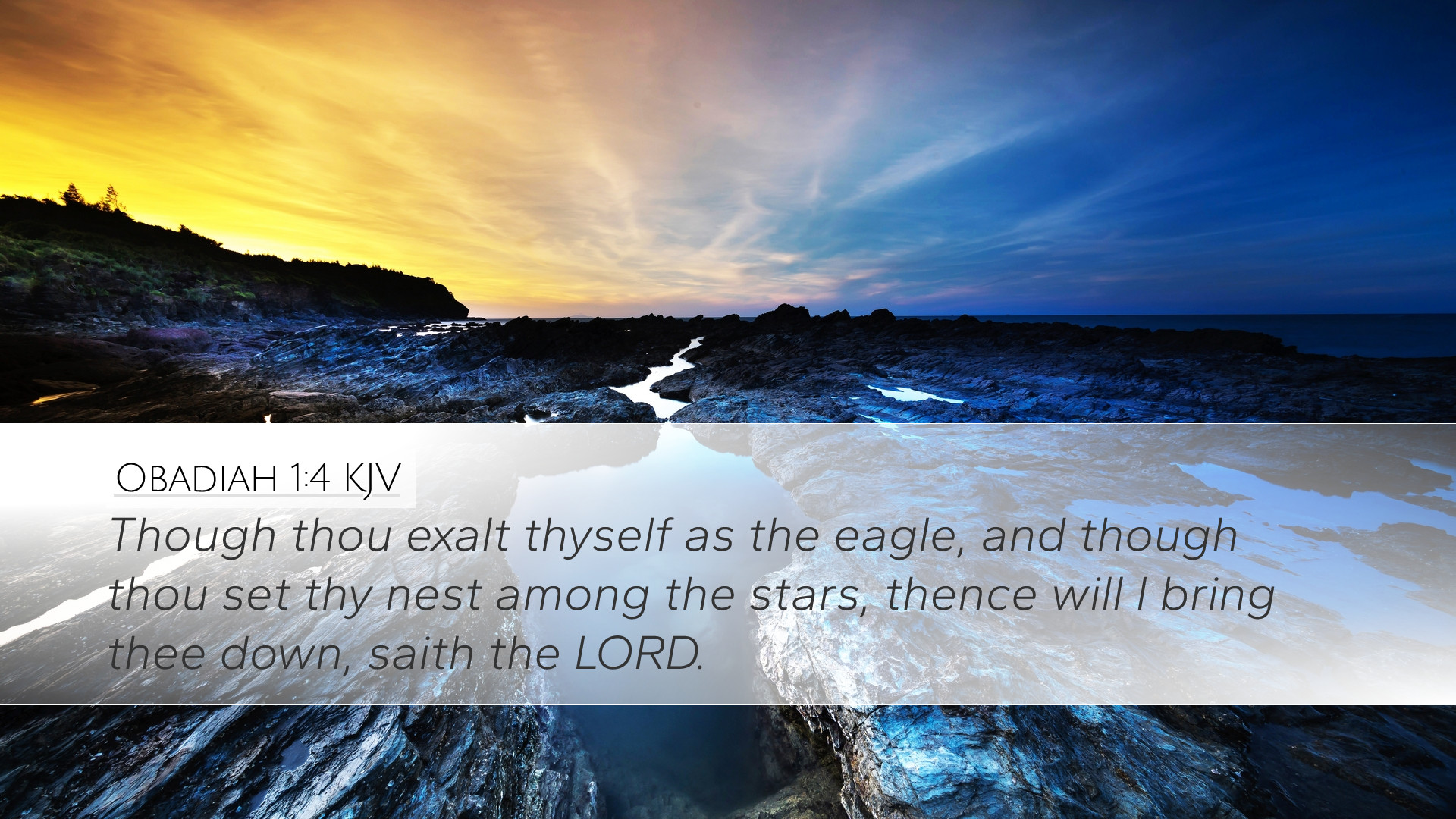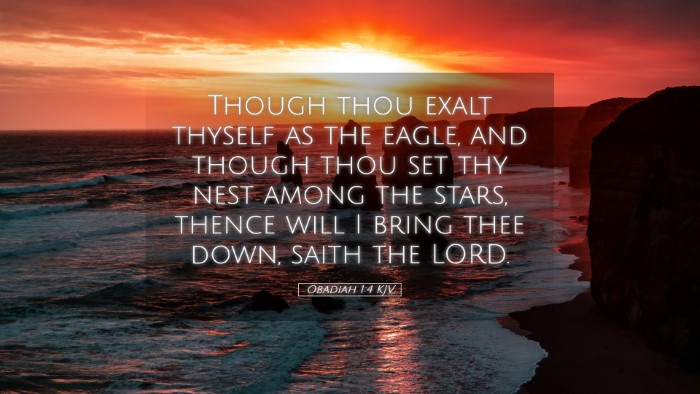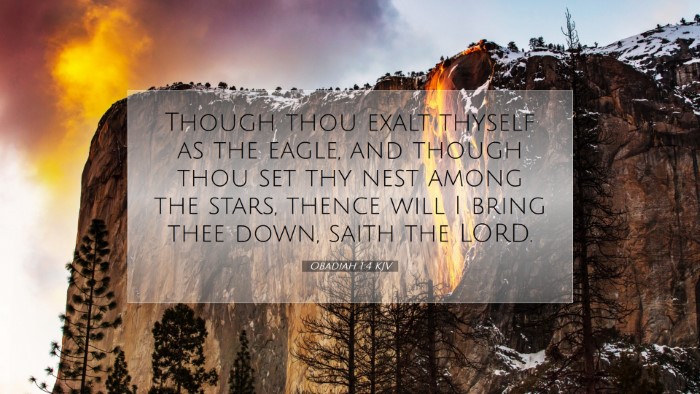Commentary on Obadiah 1:4
Verse: "Though you mount on high like the eagle, though your nest is set among the stars, from there I will bring you down," says the Lord.
Introduction
The prophecy of Obadiah is a brief but potent declaration of God’s judgment against Edom, a kingdom that had long been in opposition to Israel. The verses of this minor prophet invite us to reflect on the arrogance of nations, the justice of God, and the ultimate fate of those who oppose His will. In this particular verse, Obadiah vividly illustrates the pride of Edom through the metaphor of an eagle and addresses the height of their ambition juxtaposed with God's promise of divine justice.
Key Themes
- Pride and Arrogance: Edom is depicted as soaring high like the eagle, a symbol of power and ambition. Their pride is palpable in the assertion of their strength and safety.
- Divine Judgment: The assurance that God will bring down the proud serves as a reminder of His sovereignty and control over human affairs.
- The Fate of Nations: The destiny of all nations, even those that seem invincible, lies in the hands of God.
Detailed Commentary
Pride in Ambition
Matthew Henry remarks on the metaphor of the eagle, highlighting that the eagle’s ascent to heights reflects the ambitions of Edom. They had reason to boast of their geographical stronghold and military might. Yet, Henry warns that such pride blinds them to their vulnerabilities and the reality of God’s intention to humble them.
The Nest Among the Stars
Albert Barnes elaborates on the phrase “though your nest is set among the stars.” This imagery conveys a sense of security and invincibility. The Edomites believed that their fortified cities and strategic positions rendered them untouchable. Barnes notes that this misplaced confidence is often a precursor to downfall, as it implies a lack of dependence on God.
Divine Assurance of Judgment
Adam Clarke emphasizes the certainty of God's pronouncement: “from there will I bring you down.” The intent of the phrase is profound; it confirms that regardless of how high one ascends in pride and ambition, none can resist the will of God. Clarke urges the reader to recognize that the attributes of God’s justice transcend human understanding.
Theological Implications
This verse compels deeper theological reflection on divine justice and human pride. It serves as a sobering reminder that nations and individuals face the consequences of their disobedience and hubris. Theologically, it invites discussions on God's omnipotence contrasted with human frailty. As theologians, it drives the point that no matter how fortified we may feel in our achievements, we remain reliant on the sovereignty of God.
Practical Applications
- Humility in Leadership: Leaders should recognize the ephemeral nature of power and authority; humility should characterize their governance.
- Reliance on God: Believers are reminded to depend on God rather than personal achievements or societal status.
- Warning Against Complacency: This passage serves as a warning against complacency in faith and reliance on one’s own wisdom or strength rather than on divine guidance.
Conclusion
Obadiah 1:4 is a powerful proclamation that reverberates through time, reminding us that the prideful will not stand before the judgment of God. As we meditate on this verse, we find not only a call to humility but also an affirmation of God’s justice. In a world where many leaders and nations rise and fall, the assurance remains that God holds all in His hands and will use His might to establish His truth and righteousness.


